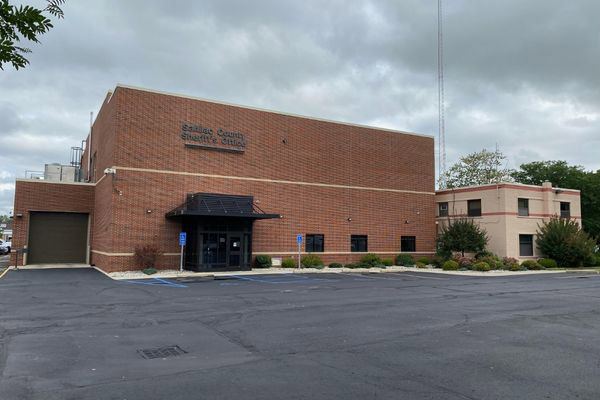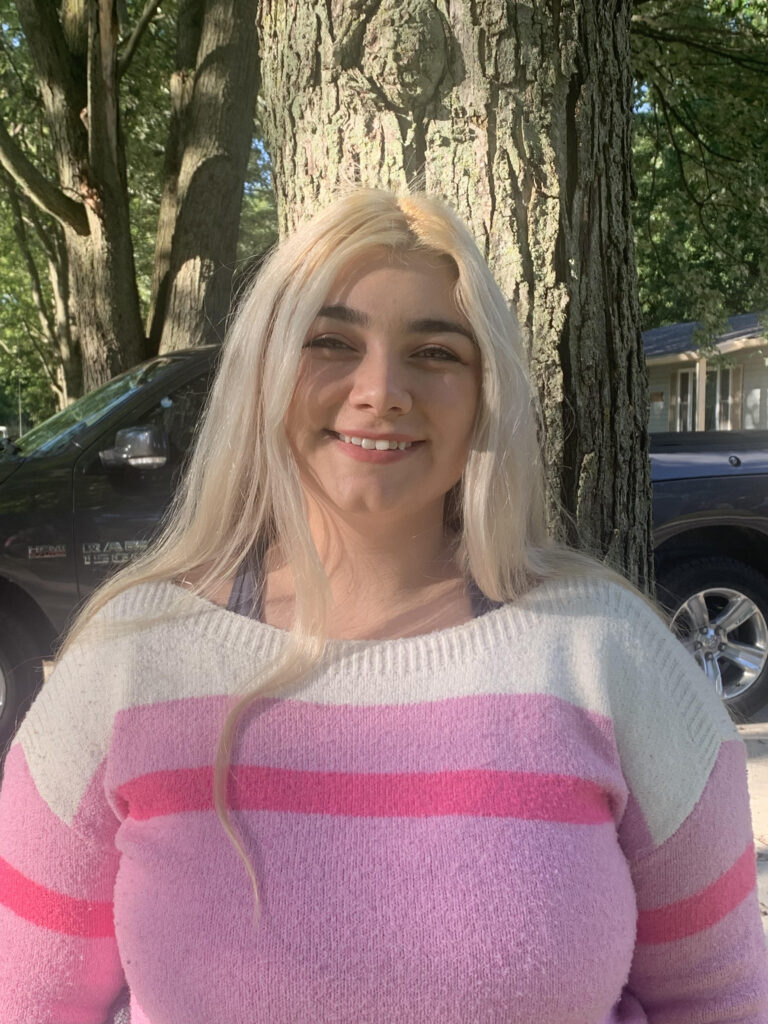UM-Flint student explores mental health in the criminal justice system

While Shelby Tracy may have spent her summer at the Sanilac County Sheriff's Office, it was not for breaking any laws.
Rather, the University of Michigan-Flint senior psychology major from Sandusky was there to study the interactions between law enforcement officers and inmates, while gaining experience in the criminal justice field ahead of her projected 2023 graduation date.
Tracy completed an immersive internship where she observed sergeants, deputies and corrections officers working together to ensure inmates were safe and the facility was secure.

"One of my favorite things to do was helping with the booking process," said Tracy. "Many of the deputies dislike that part, but oddly enough, that was one area where I was able to help most."
As part of her time with the sheriff's office, Tracy attended hearings with the deputies, helped file booking paperwork, performed half-hour checks on the inmates, created the inmates' identification badges and dispensed items from the commissary. She also worked with the deputies when it came to questioning the inmates during the booking process when one of the deputies Tracy worked with gave her an extremely valuable piece of advice about working in the field.
"He told me to always remember that a certain level of compassion is needed to work with the inmates," she said.
Tracy was not allowed to interact with the inmates on a one-on-one basis, but she did sit in on multiple case management sessions with the inmates and a caseworker from Sanilac County Community Mental Health.
She sees an opportunity for more mental health interventions in the criminal justice system as a result of attending these sessions.
Most local CMH facilities in Michigan partner with local law enforcement offices as part of their jail diversion programs, which help to keep mentally ill individuals out of jail and get them placed in local mental health outpatient programs.
Group therapy and anger management sessions are currently available to the inmates at the sheriff's office, but one-on-one therapy sessions aren't seen as requirements for each individual case.
Tracy said current inmates would benefit from more one-on-one support and additional funding could help solve that problem.
"More funding is needed to help a population that many deem unworthy of support, which is hard to hear because many of these individuals want to better themselves," Tracy said.
She added that the deputies, along with the case workers, can tell who is genuinely working to make the changes necessary to improve their lives.
Another eye-opening part of the experience were the struggles that correctional officers face working in the criminal justice field. "They have to deal with a lot from the individuals incarcerated, and sometimes their least favorite person is the correctional officer," said Tracy.
In addition to experiencing some harassment from the inmates, most officers work 12 hours shifts, which puts a strain on their family life.
Tracy, who has plans to work in behavioral analysis after graduation, said she is glad she got a better idea of what to expect if she enters the criminal justice field. "The internship opened my eyes to many things and definitely gave me more of the perspective I was looking for. It was invaluable."
Related Posts
No related photos.
Madeline Campbell
Madeline Campbell is the communications specialist for the College of Arts & Sciences. She can be reached at mciak@umich.edu.